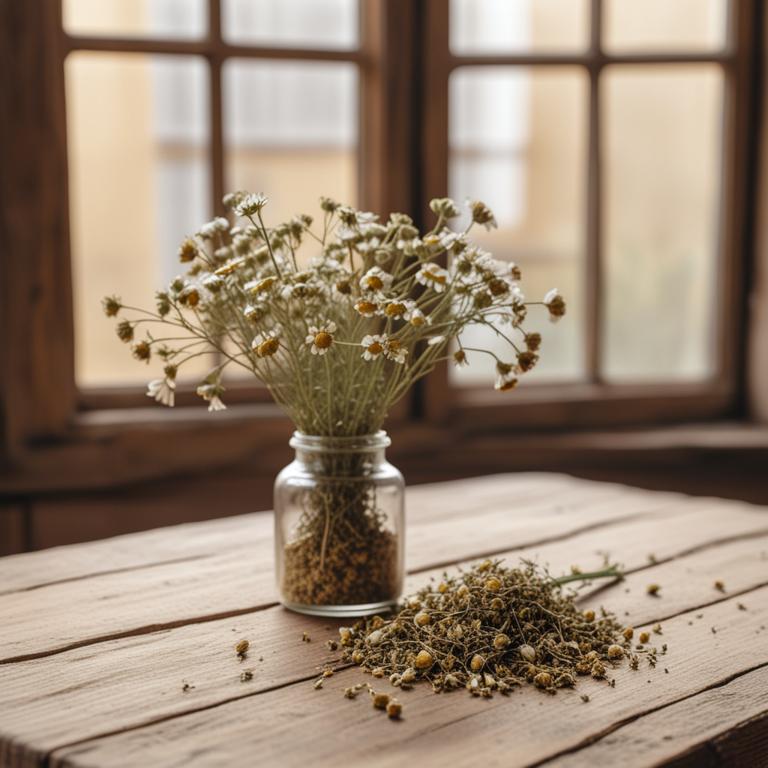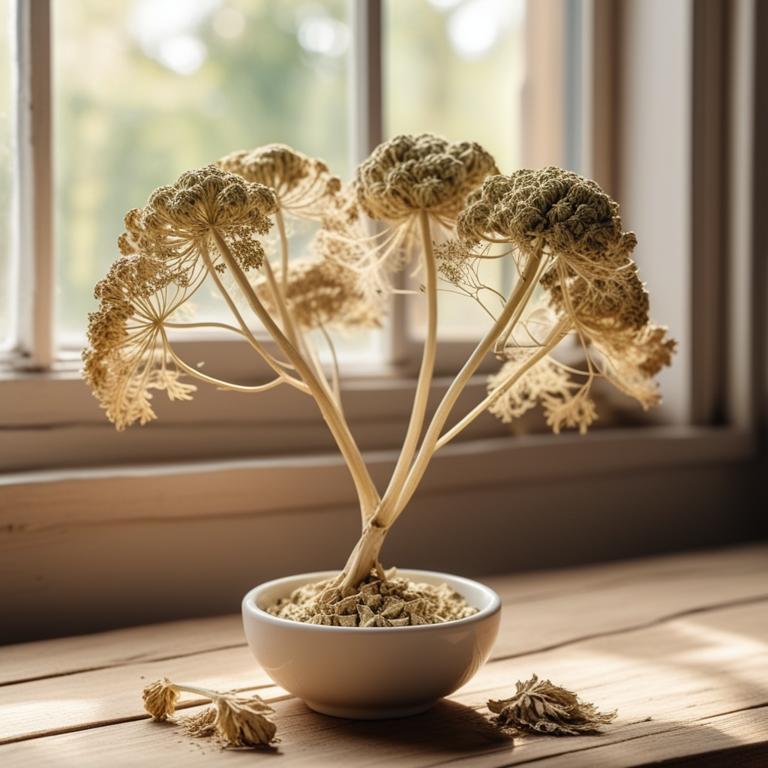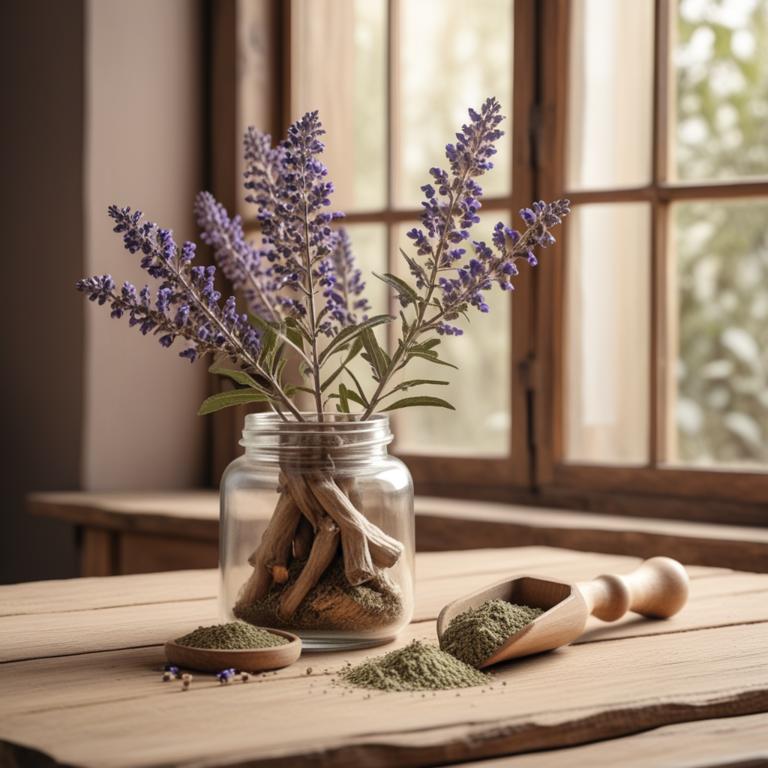Updated: Dec 1, 2024
Understanding Uterine Fibroids: Causes, Medicinal Herbs, and Alternative Treatments
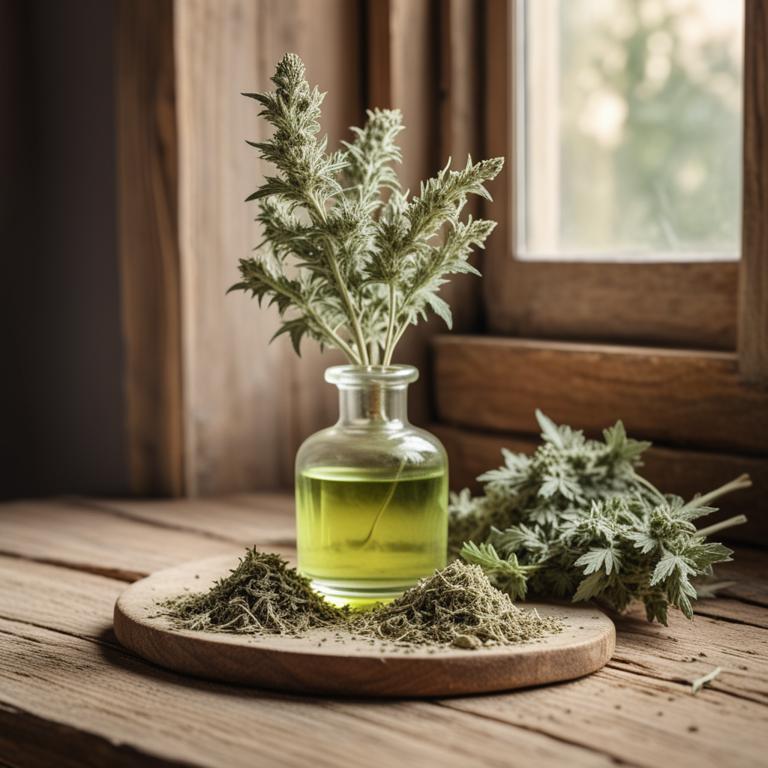
Uterine fibroids are growths in the uterus that can cause a range of symptoms, from heavy bleeding and pelvic pain to digestive issues and fatigue.
For some women, fibroids can significantly impact their daily lives, making it difficult to work, exercise, or enjoy activities they love. But what causes these growths?. While the exact cause is still not fully understood, research suggests that hormonal imbalances, genetics, and environmental factors may play a role. Fortunately, herbal remedies have been shown to help alleviate symptoms and even shrink fibroids in some cases.
Herbs like red clover, dandelion root, and black cohosh have been traditionally used to support uterine health and balance hormone levels. These herbs work by reducing inflammation, improving circulation, and regulating menstrual cycles. To use these herbs, you can try drinking teas made from dried flowers, roots, or leaves. Red clover tea, for example, can be made by steeping dried flowers in hot water. Dandelion root tea can be made by simmering the roots in water.
You can also take supplements or tinctures, but be sure to consult with a healthcare professional before making any changes to your diet or supplement routine.
Table of Contents
- What triggers the development of uterine fibroids?
- What benefits can be expected from using herbs to treat uterine fibroids?
- What are the main medicinal herbs that help alleviate uterine fibroids?
- What are the herbal supplements most commonly used to treat uterine fibroids?
- Which herbs should be avoided if you have uterine fibroids?
- FAQ
What triggers the development of uterine fibroids?
The main causes of uterine fibroids are complex and multi-faceted.
Hormonal imbalance is one of the key factors, particularly with estrogen. Estrogen promotes the growth of fibroid cells, making it easier for them to develop. Progesterone also plays a role, as it helps regulate the growth of the uterus.
However, when there's an imbalance between these two hormones, it can lead to the growth of fibroids. Genetics also come into play, as women with a family history of uterine fibroids are more likely to develop them. This is because genetic factors can affect the way hormones are produced and balanced in the body. Obesity is another contributing factor, as excess body weight can increase the production of estrogen, making it more likely for fibroids to grow.
And, a family history of uterine fibroids can also increase a woman's risk, as certain genetic traits are passed down from generation to generation.
What benefits can be expected from using herbs to treat uterine fibroids?
Using herbs to help with uterine fibroids can be beneficial in several ways.
One of the main advantages is that they can help to reduce the size and number of fibroids, which can alleviate symptoms such as heavy bleeding and pelvic pain. Some herbs may also help to regulate menstrual cycles and reduce inflammation, which can contribute to fibroid growth.
Additionally, certain herbs have been shown to improve circulation and reduce blood pressure, which can help to reduce fibroid symptoms. Others may help to balance hormones, which can also play a role in fibroid development.
By addressing the root causes of fibroids, herbs can provide a natural and potentially more effective solution for women looking to manage their symptoms and improve their quality of life.
What are the main medicinal herbs that help alleviate uterine fibroids?

Herbs have been used for centuries to help manage uterine fibroids, and research suggests they can be a valuable addition to traditional treatments.
One herb that's particularly effective is Vitex agnus-castus, also known as chasteberry. It's thought to help regulate hormonal imbalances, which can contribute to fibroid growth. By stimulating the pituitary gland, Vitex agnus-castus can help the body produce more progesterone, a hormone that helps keep fibroids in check. Urtica dioica, or stinging nettle, is another herb that's been shown to have anti-inflammatory properties, which can help reduce fibroid-related swelling and pain. It's also rich in iron, which is essential for healthy uterine function. Some studies suggest that Urtica dioica may even help shrink fibroids by reducing the growth of new tissue. Ginkgo biloba is an herb that's primarily used to improve blood circulation, but it may also help alleviate fibroid-related symptoms.
By increasing blood flow to the uterus, Ginkgo biloba can help reduce fibroid size and alleviate pressure on surrounding organs. Taraxacum officinale, or dandelion root, is a diuretic herb that can help reduce fluid retention and alleviate bloating, two common symptoms of fibroids. By promoting the removal of excess fluids, Taraxacum officinale can help reduce pressure on the uterus and alleviate pain. Paeonia lactiflora, or peony, is a herb that's been used in traditional Chinese medicine for centuries to treat a range of women's health issues, including fibroids. It's thought to have anti-inflammatory properties and may help reduce pain and discomfort associated with fibroids. Paeonia lactiflora may also help regulate menstrual cycles and reduce fibroid-related bleeding. While herbs can be a valuable addition to traditional treatments, it's essential to consult with a healthcare professional before using them to manage uterine fibroids.
They can help you determine the best course of treatment and ensure that any herbal supplements won't interact with other medications.
What are the herbal supplements most commonly used to treat uterine fibroids?

Herbal preparations can be a helpful way to manage uterine fibroids.
A decoction is a strong liquid made by boiling herbs in water, which can be effective in reducing fibroid symptoms. This preparation is good because it allows for the release of active compounds from the herbs, making them more available to the body. Herbal tinctures are also beneficial, as they're concentrated extracts of the herbs made with a solvent like alcohol or glycerin. Tinctures are great because they're easy to take and can be added to water or taken directly, making them a convenient option for people with busy lives. An herbal infusion is similar to a tea, but it's made by steeping the herbs in hot water for a longer period.
This preparation is good because it's gentle on the stomach and can be a soothing way to enjoy the benefits of the herbs. Drinking herbal tea is another way to get the benefits of the herbs, as it's a liquid made by steeping the herbs in hot water. Tea is great because it's easy to make and can be a comforting way to relax. Capsules are another way to take herbal preparations, as they contain dried herbs that have been powdered and filled into a gelatin or vegetable-based capsule. Capsules are good because they're easy to swallow and can be taken on the go, making them a convenient option for people with busy lives. Some herbs like red clover, evening primrose, and chasteberry have been traditionally used to help manage fibroid symptoms.
These herbs may help reduce inflammation, improve hormone balance, and promote relaxation, which can contribute to a reduction in fibroid symptoms.
Additional Resources:
Which herbs should be avoided if you have uterine fibroids?
If you have uterine fibroids, it's best to be cautious with certain herbs.
Angelica sinensis, also known as dong quai, may stimulate the uterus, which could worsen fibroid symptoms. This is because it's a uterine stimulant, which can increase the risk of heavy bleeding and discomfort.
Glycyrrhiza glabra, or licorice root, contains a compound that can cause the body to hold onto water, leading to swelling and potentially increasing pressure on the fibroids. Rauvolfia serpentina, a plant used to treat anxiety and high blood pressure, can interfere with hormone levels, which may affect the growth of fibroids. Ruta graveolens, or rue, has been shown to cause uterine contractions, which could exacerbate fibroid symptoms.
Cimicifuga foetida, a plant related to black cohosh, may also stimulate the uterus and worsen heavy bleeding.
FAQ
Are there any specific herbs that can prevent uterine fibroids?
Some herbs, like chasteberry and red clover, are thought to help with uterine fibroids.
Chasteberry may balance hormone levels, which can contribute to fibroid growth. Red clover contains isoflavones, which have anti-inflammatory properties that may help reduce fibroid size and alleviate symptoms.
These herbs are often used in traditional medicine for their potential benefits.
Is it safe to use herbal remedies for uterine fibroids during pregnancy?
Using herbal remedies for uterine fibroids during pregnancy is not recommended.
Some herbs can cause problems, like heavy bleeding or contractions, which could harm the mother and the baby.
The effects of herbal remedies on a developing baby are not well understood, so it's best to avoid them.
Are there any herbs that can reduce the frequency of uterine fibroids?
Some research suggests that certain herbs may help reduce the frequency of uterine fibroids.
Ginger, for example, has anti-inflammatory properties that may ease fibroid symptoms. Red clover contains isoflavones, which may help shrink fibroids.
Turmeric's active compound, curcumin, has antioxidant properties that may slow fibroid growth.
Can i combine different herbal remedies for uterine fibroids?
Combining different herbal remedies for uterine fibroids can be tricky.
Some herbs, like red clover and chamomile, may help relax the uterus and ease symptoms. However, others, such as turmeric and ginger, can have a stimulating effect.
It's essential to consider how these herbs interact and adjust your treatment plan accordingly to avoid any potential complications.
Related Articles
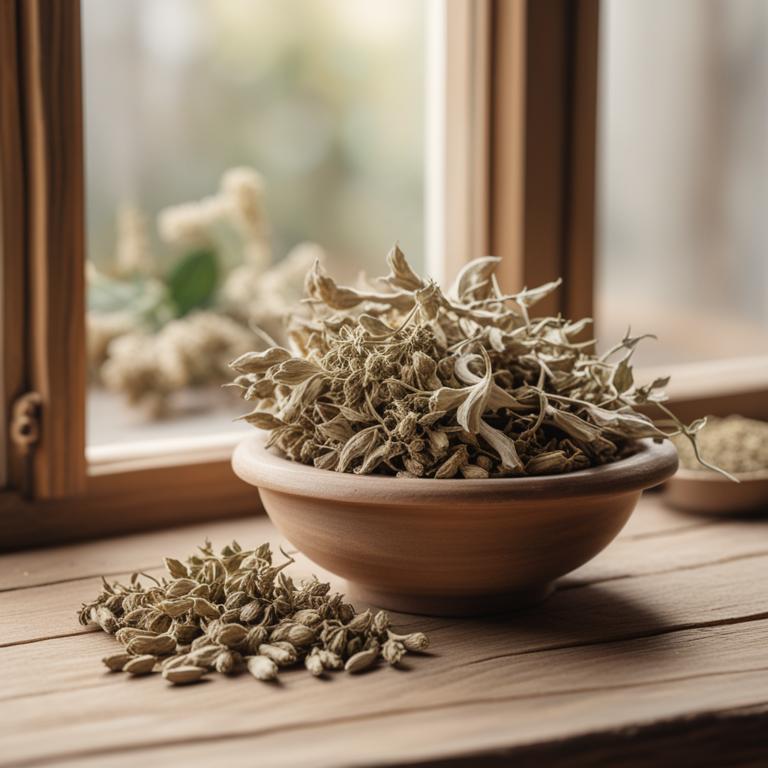
Overcoming Erectile Dysfunction with Medicinal Herbs and Natural Preparations
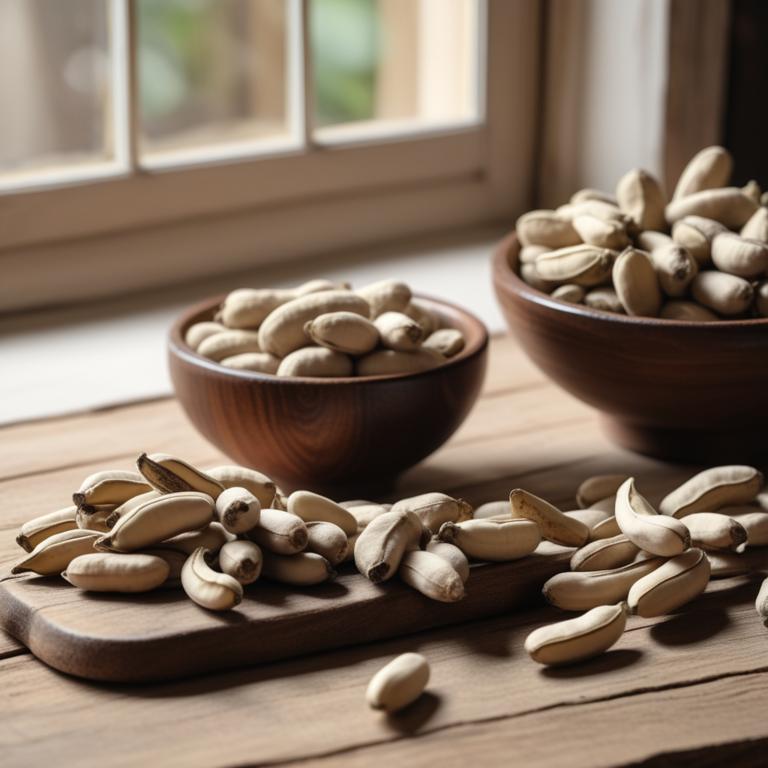
Understanding and Treating Premature Ejaculation: Medical Causes and Herbal Remedies

Understanding Uterine Fibroids: Causes, Medicinal Herbs, and Alternative Treatments
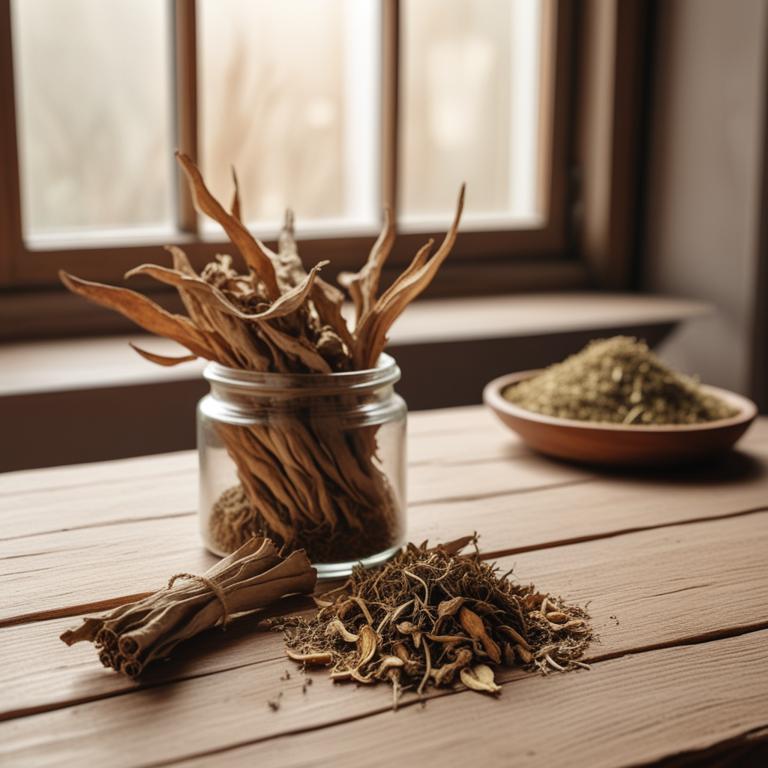
Menstrual Cramps: Understanding the Causes and Finding Relief with Medicinal Herbs
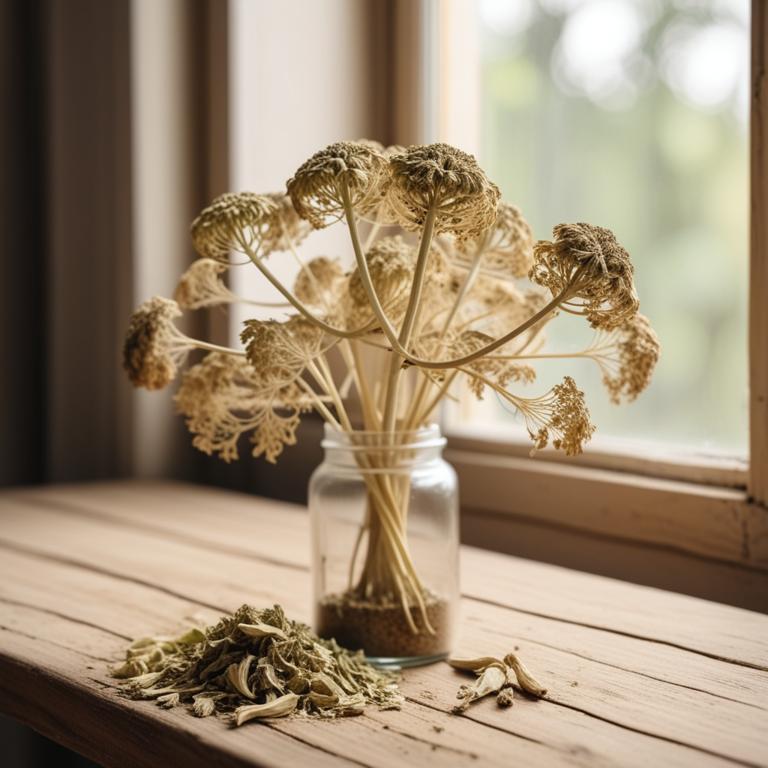
Causes, Herbal Treatments, And Preparations For Over Bleeding During Periods
